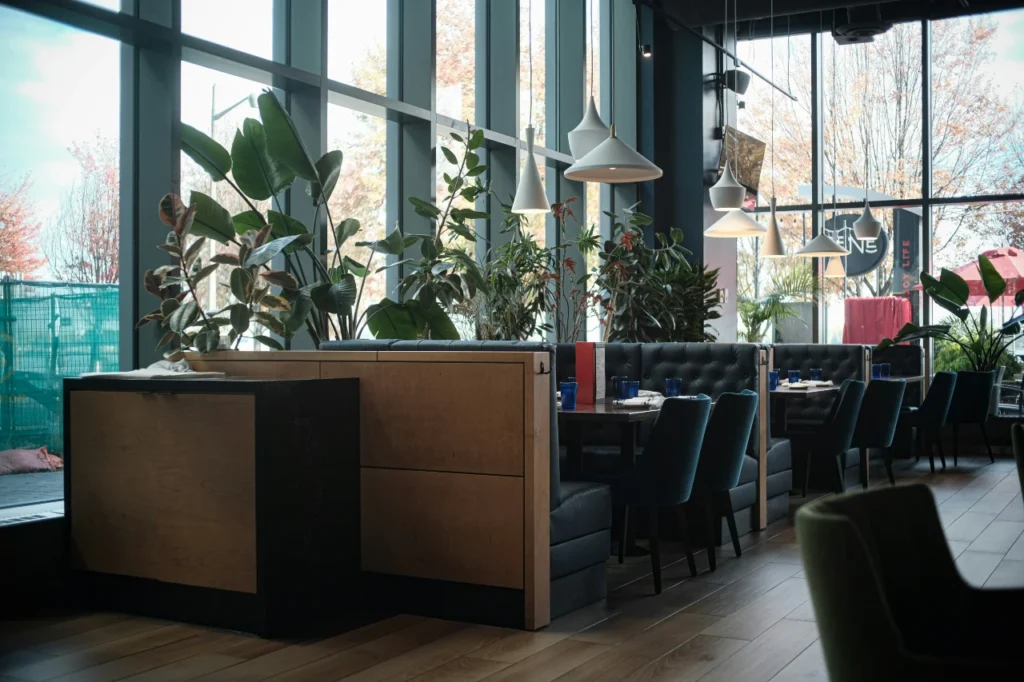



Your storefront door does more than open and close—it shapes first impressions, influences customer decisions, and even impacts your bottom line. The right choice can improve curb appeal, boost security, and create a welcoming entry point for your business.
For most commercial buildings, two materials dominate the conversation: aluminum storefront doors and glass storefront doors. Both offer advantages, but they serve businesses differently. So, which is right for you? Let’s take a closer look.
Aluminum storefront doors have long been the go-to option for many businesses across Texas and the U.S. They’re strong, versatile, and cost-effective, making them a practical solution for shops, offices, and restaurants.
Best for: Restaurants, retail stores, offices, and high-traffic commercial spaces where security and longevity are top priorities.
If your business relies on visibility and aesthetics, glass storefront doors are hard to beat. They instantly modernize a storefront and showcase what’s inside, drawing customers in.
Best for: Boutiques, showrooms, salons, and any business where design, transparency, and curb appeal are key drivers of success.
Budget plays a big role in decision-making, so it’s important to understand how storefront glass cost compares to aluminum storefront cost.
When considering price, factor in repair and replacement costs as well. Aluminum doors are less likely to require major repairs, while glass storefront doors may occasionally need storefront glass replacement if damage occurs.
Both aluminum and glass storefront doors are designed for commercial use, but their maintenance needs differ.
A hybrid solution—aluminum frames with large glass panels—offers the durability of aluminum with the visibility of glass, making it a popular middle ground.
Security is another important factor for business owners.
With proper installation by a commercial glass contractor, both options can meet high safety standards.
Ultimately, the choice between aluminum storefront doors and glass storefront doors depends on your priorities:
No matter which option you choose, proper installation is key. Working with an experienced commercial glass company ensures your storefront is safe, secure, and built to last.
At Nortex Glass, we provide expert storefront glass installation, commercial glass door repair, and glazing services across Texas and Southern Oklahoma. From small retail shops in Plano to large commercial buildings in Houston, we deliver customized solutions that match your design, budget, and performance needs.
Whether you’re looking for affordable aluminum storefront doors or a modern glass storefront system, our team has the experience to get the job done right.
Ready to upgrade your storefront? Contact Nortex Glass today for a free consultation and quote.
1. How long do aluminum storefront doors last?
On average, aluminum storefront doors can last over 20 years with proper maintenance, making them one of the most durable options.
2. Are glass storefront doors energy-efficient?
Yes. Modern insulated glass options can improve energy efficiency by reducing heat transfer and lowering energy costs.
3. What is the average storefront glass cost in Texas?
Costs vary based on size, design, and installation, but Nortex Glass offers competitive pricing tailored to your project.
4. Can I repair a storefront glass door instead of replacing it?
Yes. In many cases, minor cracks, chips, or hardware issues can be repaired. If the damage is severe, replacement is the safer choice.
5. Do aluminum storefront doors come in different finishes?
Yes. Aluminum frames are available in a wide range of finishes and colors, allowing businesses to match their branding.

Complete guide to healthcare facility glass solutions. HIPAA compliance, fire-rated systems, acoustic control & energy efficiency for hospitals in North Texas & Oklahoma.

Your restaurant's storefront is more than an entrance—it's the first chapter of your diners' experience. Before customers taste a single …

Choosing the right commercial entry door is crucial for security, efficiency, and aesthetics. Explore the 10 key factors every North Texas business should consider before installing storefront doors.